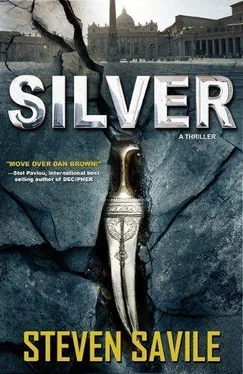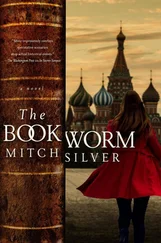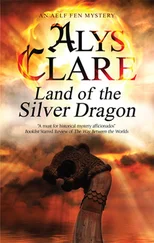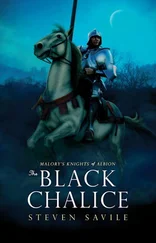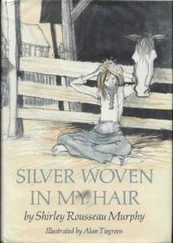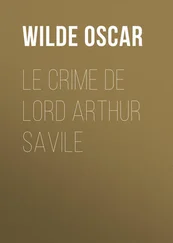Steven Savile - Silver
Здесь есть возможность читать онлайн «Steven Savile - Silver» весь текст электронной книги совершенно бесплатно (целиком полную версию без сокращений). В некоторых случаях можно слушать аудио, скачать через торрент в формате fb2 и присутствует краткое содержание. Жанр: Триллер, на английском языке. Описание произведения, (предисловие) а так же отзывы посетителей доступны на портале библиотеки ЛибКат.
- Название:Silver
- Автор:
- Жанр:
- Год:неизвестен
- ISBN:нет данных
- Рейтинг книги:4 / 5. Голосов: 1
-
Избранное:Добавить в избранное
- Отзывы:
-
Ваша оценка:
- 80
- 1
- 2
- 3
- 4
- 5
Silver: краткое содержание, описание и аннотация
Предлагаем к чтению аннотацию, описание, краткое содержание или предисловие (зависит от того, что написал сам автор книги «Silver»). Если вы не нашли необходимую информацию о книге — напишите в комментариях, мы постараемся отыскать её.
Silver — читать онлайн бесплатно полную книгу (весь текст) целиком
Ниже представлен текст книги, разбитый по страницам. Система сохранения места последней прочитанной страницы, позволяет с удобством читать онлайн бесплатно книгу «Silver», без необходимости каждый раз заново искать на чём Вы остановились. Поставьте закладку, и сможете в любой момент перейти на страницу, на которой закончили чтение.
Интервал:
Закладка:
Noah crossed the foyer. The drawing room was the first door on the right, opposite the library.
He didn’t knock.
He pushed the door open and walked inside.
The drawing room was anything but the classic Englishman’s retreat. The old man called it the crucible. Noah thought of it in military terms: it was the debriefing room. The vast room was essentially the gloss of glass and the sharp lines of steel juxtaposed against Old World England’s conservative charm. Everything in the room was laid out with Sir Charles’ disability in mind.
One entire wall comprised twelve huge high-definition plasma displays capable of showing either a single image as a visual mosaic orspliced into a dozen individual ones. On the second wall there were two bookcases: one filled with priceless first editions-Bunyon, Marlowe, Fielding and Goethe on the first shelf, folio editions of Lavater and Glanvil, Maturin and Collins, each annotated with corrections in the author’s own hand-and the other with worthless antiqued faux leather books. If Noah didn’t already know which was which, he never would have been able to guess.
Behind the fake books was a service elevator down to an area they called the nest. It was the nerve center of Nonesuch. It housed the servers and their zettabytes of stored information, harvested newswires, ran surveillance equipment, monitored satellite signals and maintained emergency power for the manor. It was the beating heart beneath the floorboards. The ruse wouldn’t fool a halfway decent intruder-wheelchair tracks in the deep pile of the carpet disappeared beneath the second bookcase-but a halfway decent intruder would never make it as far as the crucible. The fake books were there simply because Sir Charles enjoyed the game.
Recessed spotlights were set into the ceiling. They were dimmed low. The screens showed a powerful single image: a burning woman with her arms spread wide. It was time-stamped 1500 hours Zulu Time. Almost ten hours earlier.
Marble statuettes stood on plinths, each offering an aspect of war personified. There was Babd, the Celtic crow, and her sisters, Macha and Morrigan, the ghosts of the battlefield; Bast, the Egyptian lioness, standing proud and tall, fiercely defiant, while the Greek Ares and the Roman Mars both wore the guise of hunters; one-eyed Odin, with the ravens Hugin and Munin on either shoulder, encapsulated fury and wisdom, wrath and beauty, the Norse god the dichotomy of war itself; and of course, in the center of them all, Kali, the Hindu goddess of death.
The statuettes lent the room a curious air of the occult that the old man liked to foster. They were a reflection of his eclectic tastes and another part of the game. He could have chosen anything to decorate the crucible, for wealth was not an issue. Neither was taste. The old man possessed both in abundance. No, the statuettes were a very deliberate nod to the past, to death, and rather ironically, to glory.
Other than the bookcases, the main concession to traditional taste was what at first glance appeared to be a Georgian mahogany dining table in the center of the room, only instead of the leather inlay the entire table top had been cut away and embedded with a powerful touchscreen computer.
The table was surrounded by five high-backed, green leather chairs.
In four of the five chairs sat a member of Sir Charles Wyndham’s brainchild, codename Ogmios. They were bound by Mandate 7266 issued by the Secret Service, their job, to do anything and everything necessary to preserve the sovereignty of the British Isles. What that meant was more difficult to pin down. They weren’t spies. Officially they weren’t anything but outside of the law, removed from the security of the State. They were deniable. If something went wrong they were on their own. If something went right no one ever said thank you. When things went south, they were there.
The old man might call them the Forge, Noah called them the Lost Cause. It was a slightly different interpretation. Noah didn’t know who they reported to, who watched the watchmen, so to speak, but he assumed it was someone in MI6. Someone breathing the rarified air of the “higher ups.” The old man only ever referred to him or her as Control.
Noah didn’t know how the old man had picked his team. He didn’t know very much about them at all, despite the fact that every one of them would put their lives on the line for him. He knew that because they did, every day.
They put themselves into areas of unrest, sometimes to mediate, other times to facilitate, and when necessary, to bring the hammer down.
Good lies were simple lies, so they kept cover stories to a bare minimum. Less detail to remember meant less detail to forget. And of course, being deniable, any background checks run against any of the team would fail to find any links to the Secret Services.
Closest to him was Ronan Frost, the blue-eyed boy, steel-gray hair, steel-gray suit fashionably cut by Ted Baker. Frost didn’t look up. He had served with 1 Para in Kosovo in ’99 before joining the SAS’ Special Projects team-counterterrorists, to the rest of the world. Next to him was Orla Nyren, every bit the Mediterranean ideal with her flawless olive complexion, rich chocolate eyes and shoulder-length black hair, fine bones and heart-shaped lips. She was actually mixed decent; her father came from a small Italian town down on the Amalfi Coast, her mother from the ice of northern Sweden. And Orla herself was a curious blend of both gene pools. Her Scandinavian heritage was obvious in her build. Coupled with her beauty-and she was beautiful, strikingly so, Noah thought-at half an inch shy of six feet she cut an imposing figure. Her Italian side manifested itself in other ways, most of them skin deep, including one hell of a temper. Noah had been on the receiving end of it once, and once was more than enough. Nyren was ex-MI6, a Middle East intel specialist, fluent in a dozen languages, two of them dead. She was also the closest thing Noah had ever had to a crush.
On the other side of the table Konstantin Khavin inclined his head in greeting. Konstantin was ex-KGB and the very definition of the spy who came in from the cold: he had come over the wall in ’88 with nothing more than the clothes on his back and his id. He was older than the others, but he had lived the kind of life that carved itself into every inch of skin. His mouth was a thin slit like a knife cut above a dimpled chin. Noah had the distinct impression that the Russian only smiled when he wad to emphasize just how eager he was to take you outside and beat you bloody with fists and feet. Needless to say, Noah was quite happy that Konstantin wasn’t smiling. He sat there making a cat’s cradle out of his stubby fingers. The tip of the right index finger was missing and his shirt sleeves were rolled back on a cheap plastic digital watch.
They, each of them, had their own stories, their own flaws. None of them were squeaky clean or they wouldn’t have been working for the old man, but Konstantin was different. Sometimes it was impossible to tell if his stories were down to his rather dry Russian sense of humor or not. He had done things the rest of them couldn’t imagine, but he had a habit of reassigning all of the ills suffered by his people a place in his own story. He’d told Noah a story once of how he had been forced to walk down the street with his mother’s entrails draped around his neck to prove his loyalty to the State. Noah wanted to believe it was just one of Konstantin’s macabre stories because he couldn’t begin to imagine what kind of man could put a kid through something like that. It didn’t fit into his philosophy, and trying to claim that by doing it the nine-year-old Konstantin would somehow be proving his loyalty to some invisible government? It went beyond inhuman.
Читать дальшеИнтервал:
Закладка:
Похожие книги на «Silver»
Представляем Вашему вниманию похожие книги на «Silver» списком для выбора. Мы отобрали схожую по названию и смыслу литературу в надежде предоставить читателям больше вариантов отыскать новые, интересные, ещё непрочитанные произведения.
Обсуждение, отзывы о книге «Silver» и просто собственные мнения читателей. Оставьте ваши комментарии, напишите, что Вы думаете о произведении, его смысле или главных героях. Укажите что конкретно понравилось, а что нет, и почему Вы так считаете.
